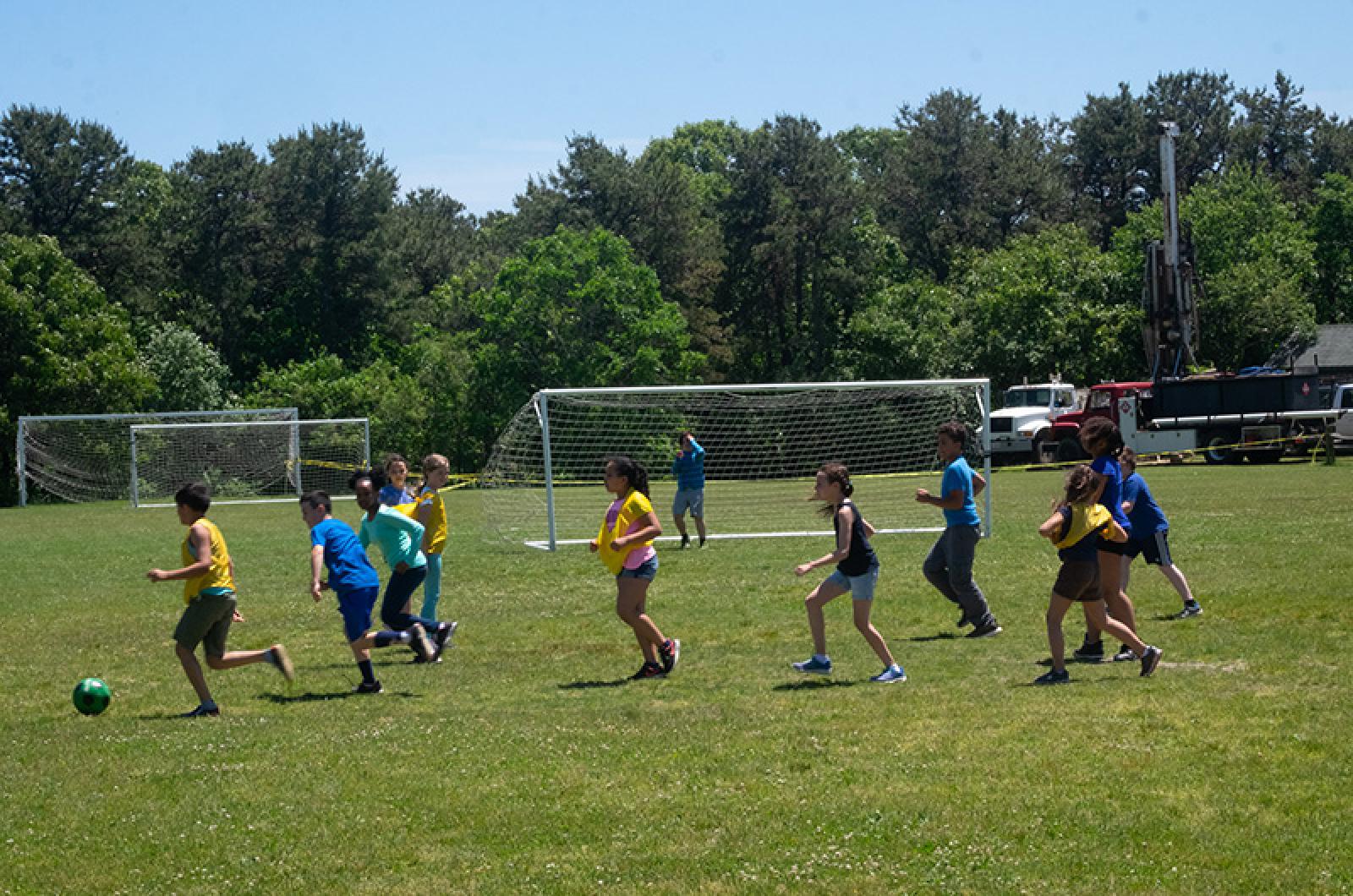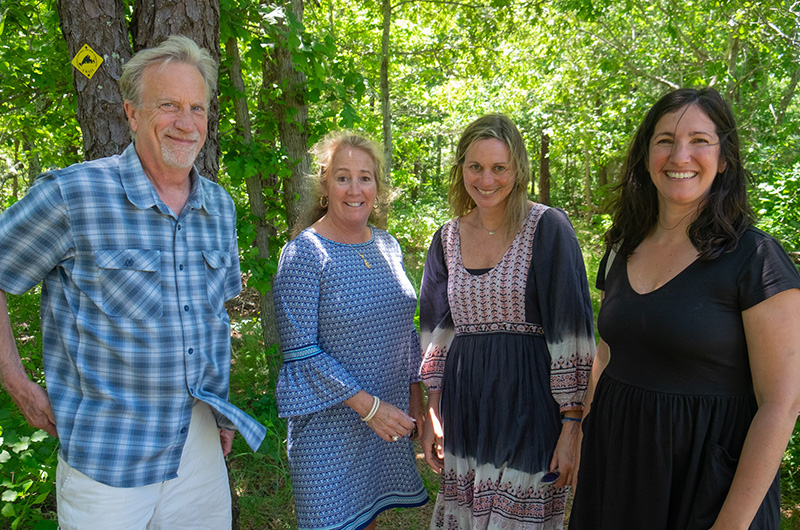They did not expect to become sustainable grass enthusiasts, but now there’s no turning back.
“I now dream about nematodes,” said Mollie Doyle, speaking of tiny soil worms. “The more I dig into the science of grass, the more I feel I’m in this alternate galaxy of how earth works.”
Along with Rebekah Thomson and Dardanella Slavin, Ms. Doyle founded the Field Fund last year amid widespread controversy over a plan to install artificial turf at some of the high school athletic fields, including the track.
And while the high school project remains in limbo, the Field Fund has since begun work at every elementary school on the Vineyard with projects to improve and maintain nontoxic grass fields. Work is also under way at some public fields.

On Tuesday morning, the three women and young mothers who are the driving force behind the Field Fund traveled to the state house in Boston to accept an award for their work promoting sustainable grass playing fields on the Island.
The award was from the Toxic Use Reduction Institute (TURI) at the University of Massachusetts Lowell. The agency was formed in 1989 and seeks to improve public health by eliminating harmful chemicals from the environment.
Assistant superintendent of schools Richie Smith also traveled to Boston to attend the ceremony.
“As a parent of a son at Oak Bluffs, I’m very grateful,” he told the Gazette. “And as a school person, I’m grateful on behalf of all kids.”
The Field Fund backers have partnered with a cadre of experts and organizations on and off the Island, including the Vineyard Conservation Society and the Sheriff’s Meadow Foundation. They have learned about organic grass growing practices from Jeff Carlson of the Vineyard Golf Club. TURI provided the Field Fund with an $8,500 grant to purchase a new Redexim level spike aerator.
The first step in the process is to get an understanding of what a field is used for, Ms. Thomson said. “It’s about focusing on the grass. Why are our fields unhealthy, why are they dusty and not draining. What do they need?” she said.
Then they collect data: aerial photographs, field compaction and soil samples. They research fertilizers and seek advice from soil experts.
“Before we put anything on the field we do a ridiculous amount of research on it,” Ms. Doyle said.
Last fall, they began pilot programs at the Chilmark, West Tisbury and Oak Bluffs schools to improve existing fields. They overseeded, fertilized, aerated and filled in divots and holes. They also worked with field owners to change mowing practices, providing additional mowing services so fields could be mowed twice a week instead of once.
“They really took a chance on us, these three moms who suddenly have become grass fanatics,” Ms. Doyle said. “The schools have allowed us to use their outdoor classrooms.”
At the Edgartown School, principal John Stevens said the fund has already provided training for the school custodian on proper care of the grass fields and taken aerial photographs. Future plans call for aerating and reseeding the main part of the playground which has poor drainage.
“We don’t claim to be experts in landscaping and turf management, so any kind of work we do is often very expensive and tedious,” Mr. Stevens said. “We want good fields for our kids to play on . . . so along comes this organization and offers some assistance at no cost . . . and it’s much appreciated. Our playground is a valuable resource for our instruction program.”
In 2018 the fund expects to spend $300,000 on projects. Since its founding the fund has raised $400,000, Ms. Doyle said. All the money comes from grants and fundraising.
Now the Field Fund is moving to bigger projects. On Thursday afternoon at the Oak Bluffs School, Ms. Doyle and Ms. Thomson looked on with their project manager Clark Myers as a drilling rig bored into the grass on the edge of the school’s fields.
The area will soon become a nonpotable well for a new irrigation system paid for by the Field Fund. The new system will use water from the well in stead of drawing from the town’s water system. An existing baseball diamond will be converted into a regulation field. All fields are also scheduled to be regraded and reseeded in time for the fall.
“It’s thrilling,” Ms. Doyle said. “This is definitely a milestone.”
School principal Megan Farrell came outside and hugged Ms. Thomson and Ms. Doyle.
“I have been working to try to find funding for a project for three years,” she said. “Then the Field Fund shows up with a generous offer to help with the project and provide us with healthy fields. It was miraculous.”
Two days earlier, the three women were in a rush to get home from the ceremony in Boston. Ms. Thomson and Ms. Doyle both had children in performances that evening.
“We’re going from toxic use reduction superstars to moms,” Ms. Doyle said.







Comments
Comment policy »